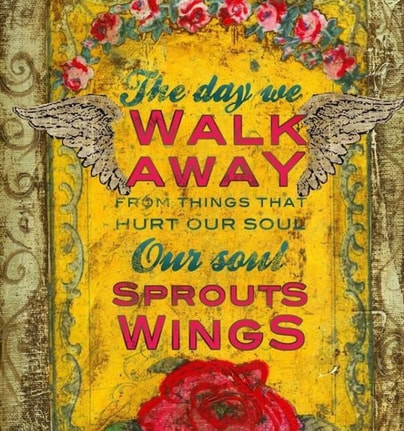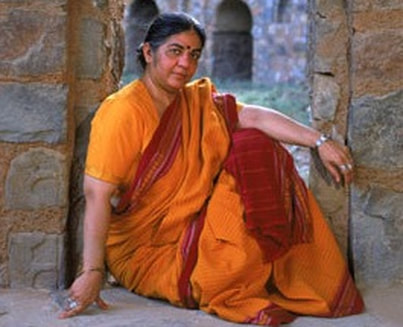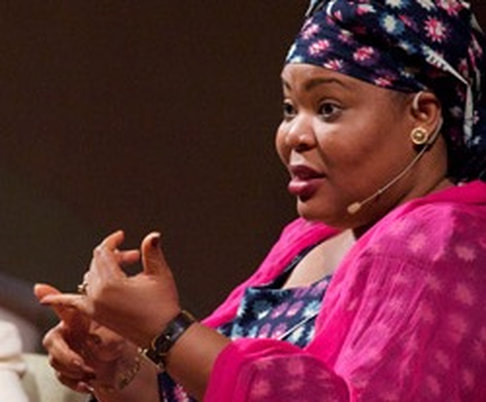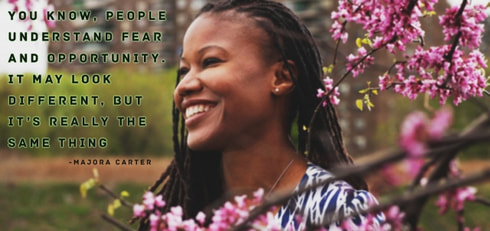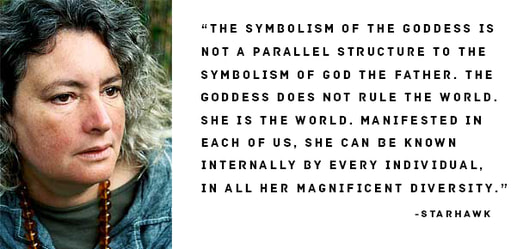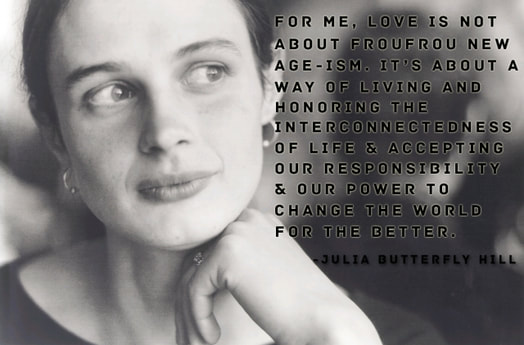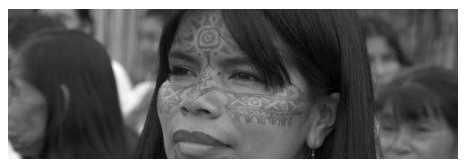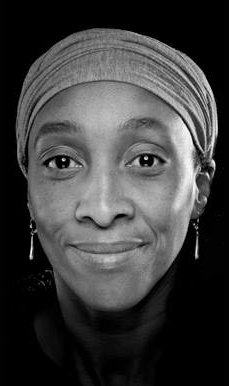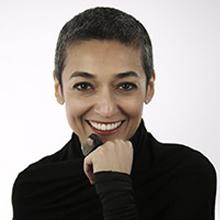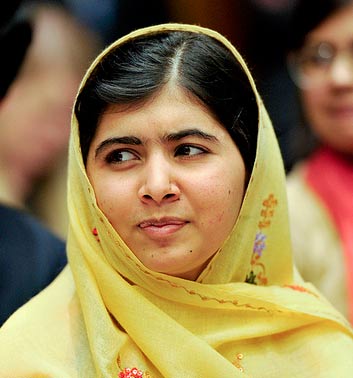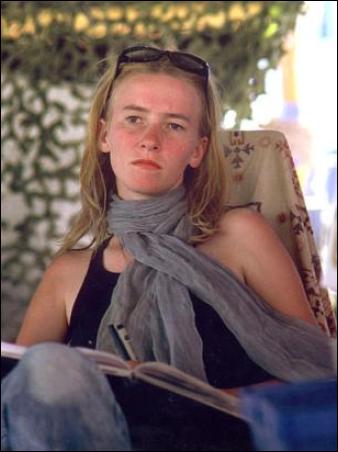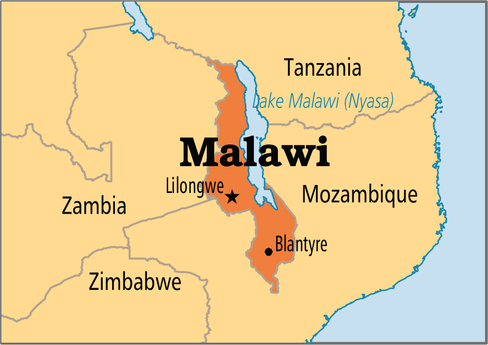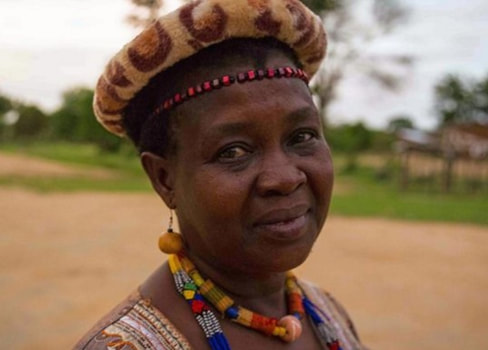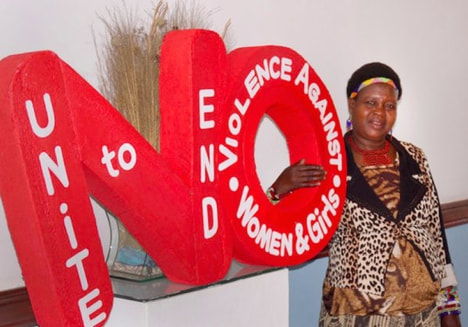DR.VANDANA SHIVA
Destroying Monsanto in court countless times
with No Fear
Corporations Fear Her,
People Love Her
Destroying Monsanto in court countless times
with No Fear
Corporations Fear Her,
People Love Her
Using the seed as a symbol of hope, Vandana Shiva is leading a global movement to bring food and farming out from the control of corporations and back into the hands of farmers.
Destroying Monsanto in court countless times, she has founded the Global Alliance for Seed Freedom, which unites farmers from around the world to save their seeds & preserve the precious variety that is left.
She calls on individuals and grassroots communities to begin shifting society’s relationship to the earth simply by growing their own food, and calls organic farmers the best peacemakers on earth.
Destroying Monsanto in court countless times, she has founded the Global Alliance for Seed Freedom, which unites farmers from around the world to save their seeds & preserve the precious variety that is left.
She calls on individuals and grassroots communities to begin shifting society’s relationship to the earth simply by growing their own food, and calls organic farmers the best peacemakers on earth.
An Interview with Dr. Vandana Shiva, one of the world’s foremost environmentalist, anti-GM activist and an advocate of ecological farming and sustainable agriculture as a solution to climate change, food security, hunger and peace.
A List of Some of the Fearless Woman
"We are either going to have a future where woman lead the way to make peace
or we are not going to have a human future at all." Dr. Vandana Shiva
"We are either going to have a future where woman lead the way to make peace
or we are not going to have a human future at all." Dr. Vandana Shiva
LEYMAH ROBERTA GBOWEE
The Top Hero of the 21 Century
The Liberian Hero,
Nobel Peace Prize Winner Had NO FEAR
Read her Action below "Leading a mass women's movement against a cruel dictator with NO FEAR"
The Top Hero of the 21 Century
The Liberian Hero,
Nobel Peace Prize Winner Had NO FEAR
Read her Action below "Leading a mass women's movement against a cruel dictator with NO FEAR"
Leymah Roberta Gbowee (born 1 February 1972) is a Liberian Lady responsible for leading a woman's peace movement that helped bring an end to the Second Liberian Civil War in 2003.
This made Lieria the first African nation to have a female president. She, along with Ellen Johnson Sirleaf and Tawakkul Karman, were awarded the 2011 Nobel Peace Prize "for their non-violent struggle for the safety of women and for women's rights to full participation in peace-building work."
The Liberian civil war, which lasted from 1989 to 2003 with only brief interruptions, was the result of economic inequality, a struggle to control natural resources, and deep-rooted rivalries among various ethnic groups, including the descendants of the freed American slaves who founded the country in 1847.
The war involved the cynical use of CHILD soldiers, armed with lightweight Kalashnikovs, against the country's civilian population. At the center of it all was Charles Taylor ( USA educated), the ruthless cruel warlord who initiated the first fighting and would eventually serve as Liberian president until he was forced into exile in 2003."
This made Lieria the first African nation to have a female president. She, along with Ellen Johnson Sirleaf and Tawakkul Karman, were awarded the 2011 Nobel Peace Prize "for their non-violent struggle for the safety of women and for women's rights to full participation in peace-building work."
The Liberian civil war, which lasted from 1989 to 2003 with only brief interruptions, was the result of economic inequality, a struggle to control natural resources, and deep-rooted rivalries among various ethnic groups, including the descendants of the freed American slaves who founded the country in 1847.
The war involved the cynical use of CHILD soldiers, armed with lightweight Kalashnikovs, against the country's civilian population. At the center of it all was Charles Taylor ( USA educated), the ruthless cruel warlord who initiated the first fighting and would eventually serve as Liberian president until he was forced into exile in 2003."
Leading a mass women's movement with NO FEAR
In the spring of 2002, Gbowee was spending her days employed in trauma-healing work and her evenings as the unpaid leader of WIPNET in Liberia. Her children, now including an adopted daughter named Lucia "Malou" (bringing the number of children to five), were living in Ghana under her sister's care.
Falling asleep in the WIPNET office one night, she awoke from a dream where she says God had told her, "Gather the women and pray for peace!" Some friends helped her to understand that the dream was not meant for others, as Gbowee thought; instead, she realized that it was a necessary for her to act upon it herself.
Following a WIPNET training session in Liberia, Gbowee and her allies, including a Mandingo-Muslim woman named Asatu, began by "going to the mosques on Friday at noon after prayers, to the markets on Saturday morning, to two churches every Sunday."
Their flyers read:
"We are tired! We are tired of our children being killed! We are tired of being raped! Women, wake up – you have a voice in the peace process!" They also handed out simple drawings explaining their purpose to the many women who couldn't read.
By the summer of 2002, Gbowee was recognized as the spokeswoman and inspirational leader of the Women of Liberia Mass Action for Peace, described as a peace movement that started with local women praying and singing in a fish market. Working across religious and ethnic lines, Gbowee led thousands of Christian and Muslim women to gather in Monrovia for months. They prayed for peace, using Muslim and Christian prayers, and eventually held daily nonviolent demonstrations and sit-ins in defiance of orders from the tyrannical president at that time, Charles Taylor.
They staged protests that included the threat of a curse and a sex strike. Of the strike, Gbowee says, "The [sex] strike lasted, on and off, for a few months. It had little or no practical effect, but it was extremely valuable in getting us media attention." In a highly risky move, the women finally occupied a field that had been used for soccer; it was beside Tubman Boulevard, the route Charles Taylor traveled twice a day, to and from Capitol Hill.
To make themselves more recognizable as a group, all of the women wore T-shirts that were white, signifying peace, with the WIPNET logo and white hair ties. Taylor finally granted a hearing for the women on April 23, 2003. With more than 2,000 women amassed outside his executive mansion, Gbowee was the person designated to make their case to him. Gbowee positioned her face to be seen by Taylor but directed her words to Grace Minor, the president of the senate and the only female government official present:
We are tired of war. We are tired of running. We are tired of begging for bulgur wheat. We are tired of our children being raped. We are now taking this stand, to secure the future of our children. Because we believe, as custodians of society, tomorrow our children will ask us,
"Mama, what was your role during the crisis?"
In her book, Gbowee reveals that Grace Minor quietly "gave a great deal of her own money... at enormous personal risk" to the women's protest movement.The protesting women extracted a promise from President Charles Taylor to attend peace talks in Ghana to negotiate with the rebels from Liberians United for Reconciliation and Democracy and another newer rebel group, MODEL.
In June 2003, Gbowee led a delegation of Liberian women to Ghana to put pressure on the warring factions during the peace-talk process. At first the women sat in a daily demonstration outside the posh hotels where the negotiators met, pressuring for progress in the talks.
When the talks dragged from early June through late July, with no progress made and violence continuing in Liberia, Gbowee led dozens of women, eventually swelling to a couple hundred, inside the hotel, where they simply "dropped down, in front of the glass door that was the main entrance to the meeting room."
They held signs that said: "Butchers and murderers of the Liberian people -- STOP!"
Gbowee passed a message to the lead mediator, General Abubakar (a former president of Nigeria), that the women would interlock their arms and remain seated in the hallway, holding the delegates "hostage" until a peace agreement was reached.
Abubakar, who proved to be sympathetic to the women, announced with some amusement:
"The peace hall has been seized by General Leymah and her troops.
" When the men tried to leave the hall, Leymah and her allies threatened to rip their clothes off:
"In Africa, it's a terrible curse to see a married or elderly woman deliberately bare herself."
With Abubakar's support, the women remained sitting outside the negotiating room during the following days, ensuring that the "atmosphere at the peace talks changed from circuslike to somber."
The Liberian war ended officially weeks later, with the signing of the Accra Comprehensive Peace Agreement on August 18, 2003. "But what we [women] did marked the beginning of the end."
In addition to bringing an end to 14 years of warfare in Liberia, this women's movement led to the 2005 election of Ellen Johnson Sirleaf as president of Liberia, the first elected woman leader of a country in Africa. Sirleaf is co-recipient of the 2011 Nobel Peace Prize along with Gbowee and Tawakel Karman. The three were awarded the prize "for their non-violent struggle for the safety of women and for women's rights to full participation in peace-building work."In Sirleaf's re-election campaign of 2011, Gbowee endorsed her.
Falling asleep in the WIPNET office one night, she awoke from a dream where she says God had told her, "Gather the women and pray for peace!" Some friends helped her to understand that the dream was not meant for others, as Gbowee thought; instead, she realized that it was a necessary for her to act upon it herself.
Following a WIPNET training session in Liberia, Gbowee and her allies, including a Mandingo-Muslim woman named Asatu, began by "going to the mosques on Friday at noon after prayers, to the markets on Saturday morning, to two churches every Sunday."
Their flyers read:
"We are tired! We are tired of our children being killed! We are tired of being raped! Women, wake up – you have a voice in the peace process!" They also handed out simple drawings explaining their purpose to the many women who couldn't read.
By the summer of 2002, Gbowee was recognized as the spokeswoman and inspirational leader of the Women of Liberia Mass Action for Peace, described as a peace movement that started with local women praying and singing in a fish market. Working across religious and ethnic lines, Gbowee led thousands of Christian and Muslim women to gather in Monrovia for months. They prayed for peace, using Muslim and Christian prayers, and eventually held daily nonviolent demonstrations and sit-ins in defiance of orders from the tyrannical president at that time, Charles Taylor.
They staged protests that included the threat of a curse and a sex strike. Of the strike, Gbowee says, "The [sex] strike lasted, on and off, for a few months. It had little or no practical effect, but it was extremely valuable in getting us media attention." In a highly risky move, the women finally occupied a field that had been used for soccer; it was beside Tubman Boulevard, the route Charles Taylor traveled twice a day, to and from Capitol Hill.
To make themselves more recognizable as a group, all of the women wore T-shirts that were white, signifying peace, with the WIPNET logo and white hair ties. Taylor finally granted a hearing for the women on April 23, 2003. With more than 2,000 women amassed outside his executive mansion, Gbowee was the person designated to make their case to him. Gbowee positioned her face to be seen by Taylor but directed her words to Grace Minor, the president of the senate and the only female government official present:
We are tired of war. We are tired of running. We are tired of begging for bulgur wheat. We are tired of our children being raped. We are now taking this stand, to secure the future of our children. Because we believe, as custodians of society, tomorrow our children will ask us,
"Mama, what was your role during the crisis?"
In her book, Gbowee reveals that Grace Minor quietly "gave a great deal of her own money... at enormous personal risk" to the women's protest movement.The protesting women extracted a promise from President Charles Taylor to attend peace talks in Ghana to negotiate with the rebels from Liberians United for Reconciliation and Democracy and another newer rebel group, MODEL.
In June 2003, Gbowee led a delegation of Liberian women to Ghana to put pressure on the warring factions during the peace-talk process. At first the women sat in a daily demonstration outside the posh hotels where the negotiators met, pressuring for progress in the talks.
When the talks dragged from early June through late July, with no progress made and violence continuing in Liberia, Gbowee led dozens of women, eventually swelling to a couple hundred, inside the hotel, where they simply "dropped down, in front of the glass door that was the main entrance to the meeting room."
They held signs that said: "Butchers and murderers of the Liberian people -- STOP!"
Gbowee passed a message to the lead mediator, General Abubakar (a former president of Nigeria), that the women would interlock their arms and remain seated in the hallway, holding the delegates "hostage" until a peace agreement was reached.
Abubakar, who proved to be sympathetic to the women, announced with some amusement:
"The peace hall has been seized by General Leymah and her troops.
" When the men tried to leave the hall, Leymah and her allies threatened to rip their clothes off:
"In Africa, it's a terrible curse to see a married or elderly woman deliberately bare herself."
With Abubakar's support, the women remained sitting outside the negotiating room during the following days, ensuring that the "atmosphere at the peace talks changed from circuslike to somber."
The Liberian war ended officially weeks later, with the signing of the Accra Comprehensive Peace Agreement on August 18, 2003. "But what we [women] did marked the beginning of the end."
In addition to bringing an end to 14 years of warfare in Liberia, this women's movement led to the 2005 election of Ellen Johnson Sirleaf as president of Liberia, the first elected woman leader of a country in Africa. Sirleaf is co-recipient of the 2011 Nobel Peace Prize along with Gbowee and Tawakel Karman. The three were awarded the prize "for their non-violent struggle for the safety of women and for women's rights to full participation in peace-building work."In Sirleaf's re-election campaign of 2011, Gbowee endorsed her.
MAJORA CARTER
She powerfully articulates the links between race,
poverty, and environmental issues
She powerfully articulates the links between race,
poverty, and environmental issues
Majora Carter first gave her inspiring talk “Greening the Ghetto” at TED in 2006. She has since gained national momentum in her approach to community development that has created miles of green spaces in her neighbourhood, the South Bronx.
She powerfully articulates the links between race, poverty, and environmental issues, stating that “no community should have to deal with a disproportionate amount of environmental burdens while enjoying few environmental benefits.”
She’s launched the non-profit Sustainable South Bronx, and has gone on to become a leader and a model of hope for struggling communities.
“I entered this field because I was not satisfied with the way things were happening in my community. I believed that our dreams for the beautiful future we wanted were the right dreams for anyone, and I did not fear that others might consider us fools for having the audacity to hope.”
She powerfully articulates the links between race, poverty, and environmental issues, stating that “no community should have to deal with a disproportionate amount of environmental burdens while enjoying few environmental benefits.”
She’s launched the non-profit Sustainable South Bronx, and has gone on to become a leader and a model of hope for struggling communities.
“I entered this field because I was not satisfied with the way things were happening in my community. I believed that our dreams for the beautiful future we wanted were the right dreams for anyone, and I did not fear that others might consider us fools for having the audacity to hope.”
STARHAWK
Started the permaculture movement
Started the permaculture movement
Star hawk wrote the classic book “The Spiral Dance" The book launched the Reclaiming tradition.
Her work has made ritual, feminism, and sustainability come together in a way that draws thousands into community. Starhawk continues to publish and speak about environmental issues and has been a large part of the permaculture movement.
‘permaculture is a practical application of the belief that the earth is sacred.’
Her work has made ritual, feminism, and sustainability come together in a way that draws thousands into community. Starhawk continues to publish and speak about environmental issues and has been a large part of the permaculture movement.
‘permaculture is a practical application of the belief that the earth is sacred.’
JULIA BUTTERFLY HILL
Her act brought worldwide awareness
to the problems of
deforestation and inspired many to take action for the Earth
Her act brought worldwide awareness
to the problems of
deforestation and inspired many to take action for the Earth
Julia Butterfly Hill is best known for living in a Redwood tree for over two years (738 days to be exact) in order to impede logging in a California forest in 1997-1999. Her act brought worldwide awareness to the problems of deforestation and inspired many to take action for the earth.
She continues to teach, write, and advocate for sustainability consciousness with her organizations; What’s Your Tree and Circle of Life, as well as written the story of her activism in “The Legacy of Luna”.
Hill has become a symbol for the impact that an individual can make in defending the earth.
She continues to teach, write, and advocate for sustainability consciousness with her organizations; What’s Your Tree and Circle of Life, as well as written the story of her activism in “The Legacy of Luna”.
Hill has become a symbol for the impact that an individual can make in defending the earth.
PATRICIA GUALINGA
An Amazonian women
who is fighting to protect their land.
An Amazonian women
who is fighting to protect their land.
Patricia Gualinga has become a spokesperson in indigenous Amazonian women’s fight to protect their land. In October 2013, she helped organize and lead a march of over 100 indigenous women to Quito, Ecuador to protest the destruction of their communities.
At the National Assembly of Ecuador, she called on the government to develop alternative energy and halt the oil extraction from indigenous lands. As an indigenous woman, Gualinga and her group are leaders in the shift of consciousness toward the sacredness of the earth.
“We are here for life, not only resources. We are here for our lives, yours, the entire world’s lives, and those of future generations.”
“We are here for life, not only resources.
We are here for our lives, yours, the entire world’s lives, and those of future generations.”
Patricia Gualinga / Ecuador
At the National Assembly of Ecuador, she called on the government to develop alternative energy and halt the oil extraction from indigenous lands. As an indigenous woman, Gualinga and her group are leaders in the shift of consciousness toward the sacredness of the earth.
“We are here for life, not only resources. We are here for our lives, yours, the entire world’s lives, and those of future generations.”
“We are here for life, not only resources.
We are here for our lives, yours, the entire world’s lives, and those of future generations.”
Patricia Gualinga / Ecuador
FRANCES WAITHE
Volunteering 100s of hours creating
a better future for us all
in the name of our most profound human emotion and love
Volunteering 100s of hours creating
a better future for us all
in the name of our most profound human emotion and love
A beautiful woman from Montreal, Frances has been working with youth, young-adults, elderly, mentally and physically disabled in our most social-desolate parts of the city. For the last 25 years she has been a part of the rehabilitation of these parts, volunteering 100s of hours creating a better future for us all in the name of our most profound human emotion and love.
Frances co-founded Desta, an organization specializing on youth between the ages of 18-25 who need someone to listen, converse and befriend.
Support your local super heroes!
Frances co-founded Desta, an organization specializing on youth between the ages of 18-25 who need someone to listen, converse and befriend.
Support your local super heroes!
Follow, celebrate, support and encompass these brilliant women and we can begin to exist as a balanced race.
ZAINAB SALBI
An Iraqi American humanitarian who dedicated
herself to women's rights and freedom
herself to women's rights and freedom
At the age of 23, she founded Women for Women International, a grassroots humanitarian and development organization.
Zainab Salbi is an Iraqi American humanitarian, author, and a media commentator that has dedicated herself to women's rights and freedom.
At the age of 23, she founded Women for Women International, a grassroots humanitarian and development organization dedicated to serving women survivors of wars rebuild their lives. Under her leadership as the organization’s CEO (1993-2011), the organization grew from helping 30 women upon its inception to more than 400,000 women in 8 conflict areas leading to a distribution of more than $100 million dollars in aid and loans, and has impacted more than 1.7 million family members.
Salbi is also the author of the national bestseller "Between Two Worlds: Escape from Tyranny: Growing Up in the Shadow of Saddam” (with Laurie Becklund). Salbi has also authored “The Other Side of War: Women's Stories of Survival and Hope” and “If You Knew Me, You Would Care.” Her books received support from iconic women writers such as Alice Walker and from several celebrities including but not limited to Angelina Jolie, Meryl Streep, and Annie Lennox.
Salbi is known for bringing international women’s issues to mainstream attention in the US, making philanthropy accessible to women at the grassroots level, and pioneering microcredit programs to post conflict areas. Salbi’s mission had always been to build programs that combine access to knowledge with access to resources to lead to lasting change in women’s lives.
For a list of organizations that Zainab supports:
Women for Women International
www.womenforwomen.org
In countries affected by conflict and war, Women for Women International supports the most marginalized women to earn and save money, improve health and well-being, influence decisions in their home and community, and connect to networks for support. By utilizing skills, knowledge, and resources, she is able to create sustainable change for herself, her family, and community.
Synergos
www.synergos.com
Synergos helps solve the complex problems of poverty and inequality by promoting and supporting collaborations among business, government, civil society, and marginalized communities. We create the conditions for these partnerships to be successful by building trust, designing and implementing change processes, enhancing the effectiveness of bridging leaders and institutions, and sharing our knowledge and experience.
Urban Zen Foundation
www.urbanzen.org
The Urban Zen Foundation creates and collaborates to raise awareness and inspire change in the areas of Well-Being, Preserving Cultures, and Empowering Children. The Urban Zen Foundation designs forums, partners with existing organizations and brings together experts to define solutions and implement action.
Komo Learning Centres
www.komolearningcentres.org
The mission of Komo Learning Centres is to empower Ugandan youth through access to education, health care and economic opportunities. It aims to provide skills training for out of school youth, health care systems from outreach to clinics, and education from primary school to university.
At the age of 23, she founded Women for Women International, a grassroots humanitarian and development organization dedicated to serving women survivors of wars rebuild their lives. Under her leadership as the organization’s CEO (1993-2011), the organization grew from helping 30 women upon its inception to more than 400,000 women in 8 conflict areas leading to a distribution of more than $100 million dollars in aid and loans, and has impacted more than 1.7 million family members.
Salbi is also the author of the national bestseller "Between Two Worlds: Escape from Tyranny: Growing Up in the Shadow of Saddam” (with Laurie Becklund). Salbi has also authored “The Other Side of War: Women's Stories of Survival and Hope” and “If You Knew Me, You Would Care.” Her books received support from iconic women writers such as Alice Walker and from several celebrities including but not limited to Angelina Jolie, Meryl Streep, and Annie Lennox.
Salbi is known for bringing international women’s issues to mainstream attention in the US, making philanthropy accessible to women at the grassroots level, and pioneering microcredit programs to post conflict areas. Salbi’s mission had always been to build programs that combine access to knowledge with access to resources to lead to lasting change in women’s lives.
For a list of organizations that Zainab supports:
Women for Women International
www.womenforwomen.org
In countries affected by conflict and war, Women for Women International supports the most marginalized women to earn and save money, improve health and well-being, influence decisions in their home and community, and connect to networks for support. By utilizing skills, knowledge, and resources, she is able to create sustainable change for herself, her family, and community.
Synergos
www.synergos.com
Synergos helps solve the complex problems of poverty and inequality by promoting and supporting collaborations among business, government, civil society, and marginalized communities. We create the conditions for these partnerships to be successful by building trust, designing and implementing change processes, enhancing the effectiveness of bridging leaders and institutions, and sharing our knowledge and experience.
Urban Zen Foundation
www.urbanzen.org
The Urban Zen Foundation creates and collaborates to raise awareness and inspire change in the areas of Well-Being, Preserving Cultures, and Empowering Children. The Urban Zen Foundation designs forums, partners with existing organizations and brings together experts to define solutions and implement action.
Komo Learning Centres
www.komolearningcentres.org
The mission of Komo Learning Centres is to empower Ugandan youth through access to education, health care and economic opportunities. It aims to provide skills training for out of school youth, health care systems from outreach to clinics, and education from primary school to university.
MALALA YOUSAFZAI
Pakistani school pupil and spokesperson
for women’s right to education.
Pakistani school pupil and spokesperson
for women’s right to education.
Malala Yousafzai is a Pakistani school pupil and spokesperson for women’s right to education. In retaliation for her high profile campaign for education and criticism of the Taliban, she was shot in the head at close range by a Taliban gunman.
She survived the gunshot wound and has become a leading spokesperson for human rights, education and women’s rights. She has received numerous peace awards, and received the Nobel Peace Prize in 2014 along with Kailash Satyarthi, an Indian children’s rights activist.
She survived the gunshot wound and has become a leading spokesperson for human rights, education and women’s rights. She has received numerous peace awards, and received the Nobel Peace Prize in 2014 along with Kailash Satyarthi, an Indian children’s rights activist.
RACHEL CORRIE
1980 - 2003
1980 - 2003
While undertaking nonviolent action,
she lost Her life
she lost Her life
Rachel Corrie was a 23-year-old American peace activist from Olympia, Washington, who was crushed to death by a bulldozer on 16, March 2003, while undertaking nonviolent direct action to protect the homes of families from demolition.
Since her killing, an enormous amount of solidarity activities have been carried out in her name around the world.
Rachel Corrie, in an email to her mother, February 28, 2003
"I should at least mention that I am also discovering a degree of strength and of basic ability for humans to remain human in the direst of circumstances – which I also haven’t seen before.
I think the word is dignity. I wish you could meet these people.
Maybe, hopefully, someday you will."
Since her killing, an enormous amount of solidarity activities have been carried out in her name around the world.
Rachel Corrie, in an email to her mother, February 28, 2003
"I should at least mention that I am also discovering a degree of strength and of basic ability for humans to remain human in the direst of circumstances – which I also haven’t seen before.
I think the word is dignity. I wish you could meet these people.
Maybe, hopefully, someday you will."
Some Thoughts About Woman
Many - many centuries ago, men realized women had a powerful connection to nature, not only via their ability to give birth, but their intuitive nature.
When the Religious movements started, it was started by men who wanted to control the masses. The power of women were a threat to them. They knew that they could not as easily control people with the intuitive wisdom and power of women to teach people that each of us has an equal connection to God.
These men decided to portray women's intuitive nature as 'evil' and they decided as well, to portray them as the lesser sex in the eyes of god, who could only reach god via the male. In this way, they could dis empower women and create the patriarchal control over the masses they sought.
That is why in the Crusades they burned the Women's temples in which they taught many mysteries of nature, sexuality and intuitive sciences. That is why they burned women who grew gardens with healing herbs and women who displayed healing power. They wanted people to think only 'god' could heal. They said women's powers were of the 'devil' so they could subdue them and sustain their control.
People have been taught for centuries, interpreting bible stories to justify their opinions, that women are lesser than men. They don't realize why they were taught this. They believe it is God's opinion.
How can women's rights be respected when, in their heart of hearts, men do not believe women, being the lesser sex, HAVE been sanctioned these rights by God?
We are talking about a very dark, archaic form of ignorance that, in 2015 is still playing out in the political issues of the day.
Now, women are realizing their true place in our culture and defying this ancient ignorance. However, for women who are a part of a religion that teaches that women are lesser than the man, this is quite a challenge.
When the Religious movements started, it was started by men who wanted to control the masses. The power of women were a threat to them. They knew that they could not as easily control people with the intuitive wisdom and power of women to teach people that each of us has an equal connection to God.
These men decided to portray women's intuitive nature as 'evil' and they decided as well, to portray them as the lesser sex in the eyes of god, who could only reach god via the male. In this way, they could dis empower women and create the patriarchal control over the masses they sought.
That is why in the Crusades they burned the Women's temples in which they taught many mysteries of nature, sexuality and intuitive sciences. That is why they burned women who grew gardens with healing herbs and women who displayed healing power. They wanted people to think only 'god' could heal. They said women's powers were of the 'devil' so they could subdue them and sustain their control.
People have been taught for centuries, interpreting bible stories to justify their opinions, that women are lesser than men. They don't realize why they were taught this. They believe it is God's opinion.
How can women's rights be respected when, in their heart of hearts, men do not believe women, being the lesser sex, HAVE been sanctioned these rights by God?
We are talking about a very dark, archaic form of ignorance that, in 2015 is still playing out in the political issues of the day.
Now, women are realizing their true place in our culture and defying this ancient ignorance. However, for women who are a part of a religion that teaches that women are lesser than the man, this is quite a challenge.
Theresa Kachindamoto
Female chief in Malawi breaks up 850 child marriages
and sends girls back to school
by Marni Fogelson-Teel
Theresa Kachindamoto, the senior chief in the Dedza District of Central Malawi, wields power over close to 900,000 people… and she’s not afraid to use her authority to help the women and girls in her district. In the past three years, she has annulled more than 850 child marriages.
Fe, sent hundreds of young women back to school to continue their education, and made strides to abolish cleansing rituals that require girls as young as seven to go to sexual initiation camps. With more than half of Malawi’s girls married before the age of 18, according to a 2012 United Nations survey — and a consistently low ranking on the human development index, Kachindamoto’s no-nonsense attitude and effective measures have made her a vital ally in the fight for women’s and children’s rights.
and sends girls back to school
by Marni Fogelson-Teel
Theresa Kachindamoto, the senior chief in the Dedza District of Central Malawi, wields power over close to 900,000 people… and she’s not afraid to use her authority to help the women and girls in her district. In the past three years, she has annulled more than 850 child marriages.
Fe, sent hundreds of young women back to school to continue their education, and made strides to abolish cleansing rituals that require girls as young as seven to go to sexual initiation camps. With more than half of Malawi’s girls married before the age of 18, according to a 2012 United Nations survey — and a consistently low ranking on the human development index, Kachindamoto’s no-nonsense attitude and effective measures have made her a vital ally in the fight for women’s and children’s rights.
Image © UN Women
Kachindamoto, who was born in Dedza District, had been working as a secretary for twenty-seven years in another district when she was called to come home and serve as a chief. Upon her return, she was dismayed at the sight of 12 year-old girls with babies and young husbands and quickly began to take action. Last year, Malawi raised the legal age to marry to 18, yet parental consent continues to serve as a loophole to allow younger girls to marry. Kachindamoto ordered 50 of her sub-chiefs to sign an agreement ending child marriage in Dedza District.
When a few male chiefs continued to approve the marriages, Kachindamoto suspended them until they annulled the unions. In addition to annulling the marriages (330 in June of 2015 alone!), this fierce chief sent the children back to school, often paying their school fees with her own money. She has also asked parliament to raise the minimum age of marriage again to 21.
RELATED | An Ambulance is Transformed into a Playground for a Children’s Hospital in Malawi
In an area where girls are often married early to ease a family’s financial burden and where one in five girls in Malawi are victims of sexual abuse, Kachindamoto is also taking a stand against the cleansing camps where girls are routinely sent before marriage.
The sexual initiation rites that take place there are extremely disturbing, particularly in a country where one in ten people has HIV. Kachindamoto is threatening to dismiss any chiefs that continue to allow these controversial practices. Kachindamoto has faced plenty of opposition to her efforts from parents and community members, even receiving death threats, yet she remains determined to continue changing minds and laws for the benefits of Malawi’s females and their futures. In Kachindamoto’s own words, “If they are educated, they can be and have anything they want.”
Via The Huffington Post and Al Jazeera
Lead image © Hannah McNeish for Al Jazeera
Kachindamoto, who was born in Dedza District, had been working as a secretary for twenty-seven years in another district when she was called to come home and serve as a chief. Upon her return, she was dismayed at the sight of 12 year-old girls with babies and young husbands and quickly began to take action. Last year, Malawi raised the legal age to marry to 18, yet parental consent continues to serve as a loophole to allow younger girls to marry. Kachindamoto ordered 50 of her sub-chiefs to sign an agreement ending child marriage in Dedza District.
When a few male chiefs continued to approve the marriages, Kachindamoto suspended them until they annulled the unions. In addition to annulling the marriages (330 in June of 2015 alone!), this fierce chief sent the children back to school, often paying their school fees with her own money. She has also asked parliament to raise the minimum age of marriage again to 21.
RELATED | An Ambulance is Transformed into a Playground for a Children’s Hospital in Malawi
In an area where girls are often married early to ease a family’s financial burden and where one in five girls in Malawi are victims of sexual abuse, Kachindamoto is also taking a stand against the cleansing camps where girls are routinely sent before marriage.
The sexual initiation rites that take place there are extremely disturbing, particularly in a country where one in ten people has HIV. Kachindamoto is threatening to dismiss any chiefs that continue to allow these controversial practices. Kachindamoto has faced plenty of opposition to her efforts from parents and community members, even receiving death threats, yet she remains determined to continue changing minds and laws for the benefits of Malawi’s females and their futures. In Kachindamoto’s own words, “If they are educated, they can be and have anything they want.”
Via The Huffington Post and Al Jazeera
Lead image © Hannah McNeish for Al Jazeera


